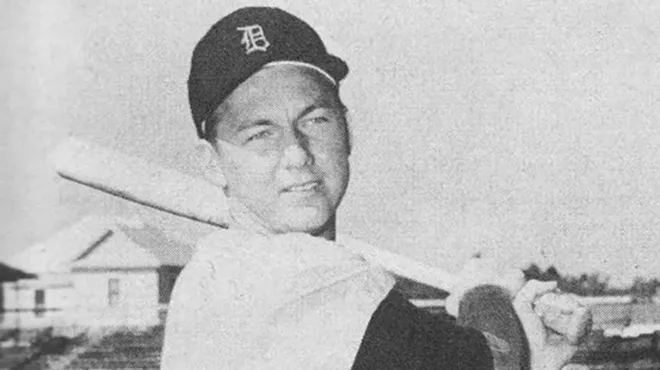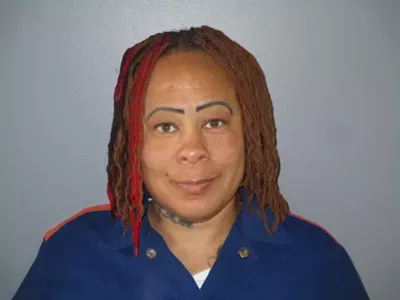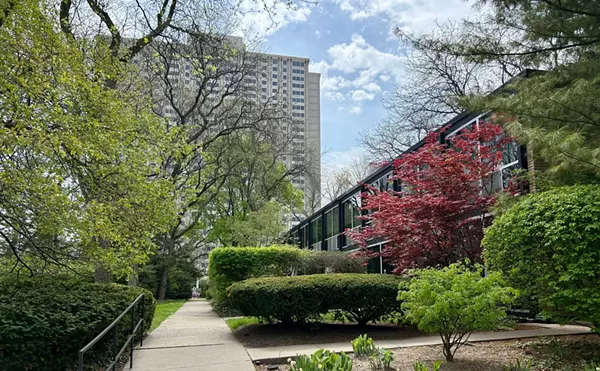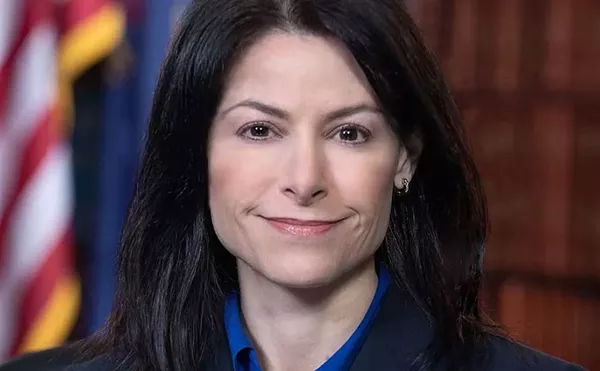50 years ago: The Major League debut of Ron LeFlore
The Detroit east side native hadn’t even played an organized game of baseball until he was 23, when he was surrounded by barbed wire, five-story-high concrete walls, and a watchtower with an armed guard at the ready
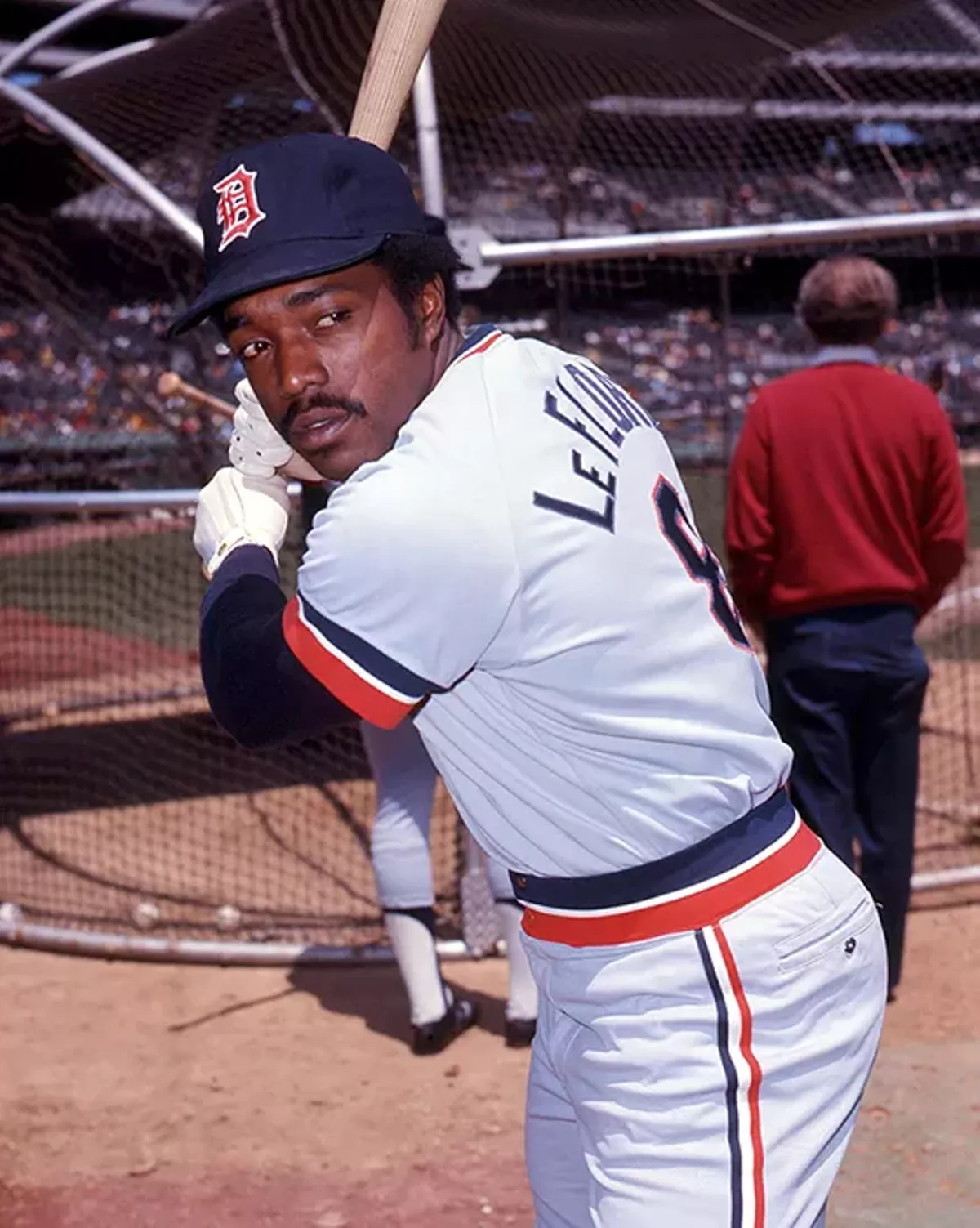

Audio By Carbonatix
[
{
"name": "GPT - Leaderboard - Inline - Content",
"component": "35519556",
"insertPoint": "5th",
"startingPoint": "3",
"requiredCountToDisplay": "3",
"maxInsertions": 100,
"adList": [
{
"adPreset": "LeaderboardInline"
}
]
}
]
A half-century ago, Thursday, August 1, 1974, on a cool, summer evening in Milwaukee, Wisconsin, 26-year-old Ron LeFlore made his Major League Baseball debut for the Detroit Tigers. The Brewers were hosting the Tigers at Milwaukee County Stadium. Game time was set for 8:30 p.m.
A crowd of only 9,000 passed through the turnstiles that night, leaving 80% of the stadium vacant. To LeFlore, it must have felt like he was still in the minors.
Warming up in the on-deck circle while waiting for his name to be read over the loudspeaker, LeFlore was about to reach a milestone. He was forty feet away from achieving what he had spent every day over the past three years working towards. No one in that stadium had any idea what he went through to get there— nor did they care.
“Go back to jail, jailbird!” fans yelled from the stands.
LeFlore’s story was unlike any other baseball player’s journey. While most dream of this moment when they first picked up a bat in a Little League game or shag fly balls with their dad, LeFlore had never done any of that. The Detroit east side native hadn’t even played an organized game of baseball until he was 23, when he was surrounded by barbed wire, five-story-high concrete walls, and a watchtower with an armed guard at the ready. His coach was a convicted felon, sentenced for racketeering and extortion. Ron was serving a five-to fifteen-year sentence at Southern Michigan Prison in Jackson for armed robbery.
Trying to navigate the penal system, LeFlore tapped into a skill he had underestimated for years: his athleticism. He joined the prison’s softball team and later the baseball team, hoping it would expedite his release date for good behavior. His talent and hard work made him stand out. LeFlore’s coach and teammates convinced him to try out for the Detroit Tigers. By a surprising piece of luck, he was invited for a tryout, and then managed to impress the recruiters. Released early from Jackson, but still on parole, LeFlore moved quickly through the Tiger farm system before getting the call.
“You’re starting tonight,” Tiger manager Ralph Houk told LeFlore, who had barely put his luggage down after checking in at the team’s hotel. It was the first time the two men met in person. Houk, a former army major, told the rookie, who would be the team’s leadoff hitter, “Don't worry about anything. Just do your best.”
Don’t worry? LeFlore was barely in AAA-level ball for a week in Evansville, Indiana, when he got the call to come to Detroit. Thinking that he would be eased into the lineup, he was immediately overwhelmed.
As LeFlore set himself up in the batter’s box, his knees were shaking so much so that he thought he would topple over. Unable to relax, his first at bat in the Majors went quickly. He struck out. He proceeded to strike out in his next two plate appearances.
At the top of the eighth inning, with the Tigers leading 1-0, LeFlore finally made contact with the ball. He hit a grounder to the third baseman who fielded it and threw it safely to first base. He was clearly out, but it gave the public a glimpse of LeFlore’s speed. Designated hitter Al Kaline, in the final season of his twenty-two-year career, all with the Tigers, was watching from the dugout and was taken aback. Even though LeFlore was out, Kaline had “never seen anyone run faster to first base.”
With the Tigers up 2-0 in the bottom of the ninth, Houk could have taken out LeFlore and put in someone with better defensive capability to maintain the lead. He knew the Brewers would attempt to take advantage of the rookie center fielder, hoping he’ll either bobble the ball or make an ill-advised throw that could swing the game in their favor. Yet, Houk kept him in. With two outs, the third (and possibly, final) batter was first baseman George Scott, who had the power to go the distance. He swatted it toward center field. LeFlore, still suffering from shaky knees, got under it and caught it. Game over. Tigers won!
When the team returned to their hotel, LeFlore joined his teammates at the bar for a nightcap. When he found an empty stool, he was hoping to drink the night away and forget about his poor performance at the plate.
“Ronnie, come on, sit down.”
When LeFlore turned around to see who was calling his name, he was stunned. It was Al Kaline — “Mr. Tiger” himself. He ordered LeFlore a drink.
The veteran tutored the rookie about his struggles at the plate and how the 162-game season was like running in a marathon. He advised him to take one game at a time; otherwise, he would burn himself out. The conversation put LeFlore at ease, though a bit tipsy. Eventually, Kaline excused himself. Other teammates came over to join LeFlore — third baseman Aurelio Rodriguez, left fielder Jim Northrup, and pinch hitter (and ex-convict) Gates Brown — and celebrate his first day in the big leagues by getting him even more drunk.
Once the bar closed, the players carried LeFlore to his room, left him on the floor, put a flower on his chest and crossed his hands over one another as if he were laying in a casket. Welcome to the Major Leagues.
LeFlore emerged as the Tigers’ top hitter and base stealer during the latter half of the 1970s. He was the first Tiger to achieve 200 hits in a season since Al Kaline in 1955. He was voted by fans to be a starter in the All-Star Game in 1976, the same year he had the longest hitting streak in the American League in thirty years and the longest by a Tiger since 1930.
LeFlore may not have made it to the National Baseball Hall of Fame, but his incredible journey to the Majors is in a league of its own.

